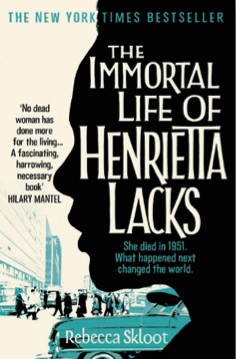TUESDAY, 13 MAY 2014
THIS WEEK IN VIROLOGY (TWIV) is a weekly 90 minute podcast presented by virologist Vincent Racaniello, Professor at Columbia University. Racaniello discusses either cutting-edge developments in virus research or the basic tenets of virology, with regular guests including Dickson Despommier, Alan Dove, Rich Condit and Kathy Spindler, plus a carousel of other famous virologists. The podcasts, which began in 2009, are aimed at a general audience regardless of their science background. Each episode reviews topical scientific papers that have been recently published, and the presenters explain any complex scientific terms along the way. The result resembles a conversation between friends down the pub–beginning with a chat about the weather across the globe, but then quickly turning to topics such as vaccination and science policy. Each episode is capped with alternative forms of science outreach ranging from Youtube videos of Chris Hadfield singing in space to blogs selling woollen virus models. Whether you’re an arts student with a passing interest in science or a scientist from a different field, you’ll find something that will capture your imagination listening to TWiV. Sarah SmithRadiolab - Jad Abumrad and Robert Krulwich
HAVE YOU EVER WONDERED whether other animals laugh as we do? Can you think of a woman whose skin and blood DNA don’t match? Could you imagine that parasites may be able to cure our allergies? Jad Abumrad and Robert Krulwich tackle these and hundreds more questions in a science podcast that brings together laughter, emotion and wonder. Radiolab is broadcasted by WNYC, a public radio station from New York. Each episode attacks a topic from three different perspectives, exploring them using anything from experiments and interviews, to stories,and usually finishes without giving conclusions,leaving questions open for the public to reflecton. Jad and Robert manage to discuss complex topics in an easy and unthreatening way, creating a fun environment throughout the podcasts. They laugh all the time, continually challenge each other’s arguments, and openly acknowledge to not always understand what their interviewees are saying. On top of that, Jad, who initially intended to work as a composer, incorporates great sounds throughout the episode. Radiolab has received several awards, including the National Academies Communication Award,and currently has more than a million and a half listeners. It’s easy to see why the show’s incredible stories always leave me amazed, while its jokes have made me laugh so hard I’ve tripped off the treadmill! Ornela De Gasperin Quintero
The immortal life of Henrietta Lacks - Rebecca Skloot
THE IMMORTAL LIFE OF HENRIETTA LACKS is a powerful non-fiction work that touches on subjects ranging from the development of scientific techniques such as cell culture, to race and class issues in America in the 1950s, and the impact of these issues today. In this book, Rebecca Skloot explains the origin of the famous HeLa cell line. She does so by piecing together old medical and laboratory files and speaking to those involved; a challenging feat since many records have been lost and many of the people involved have passed away. In addition to explaining the science behind this achievement, Skloot tells us two stories, one about her journey searching for the facts, and another about the history of the Lacks family. HeLa cells originally came from a tumour in the womb of a black, lower class woman named Henrietta Lacks taken during a biopsy without her consent. They were given to researchers who were attempting to culture the first human cell line. The discovery that Henrietta’s cells could grow in the laboratory led them to track down and visit the family repeatedly, without properly explaining the research being done. The experience impacted the family and fuelled the injustice felt by them, especially in light of the massive profits made by companies selling these cells. The number of scientific discoveries achieved thanks to Henrietta’s cells is massive–over 60,000+ papers have been published using the cells. The history surrounding this scientific achievement and the examination of the issues surrounding this case make for a compelling read. Caitlin Stewart



